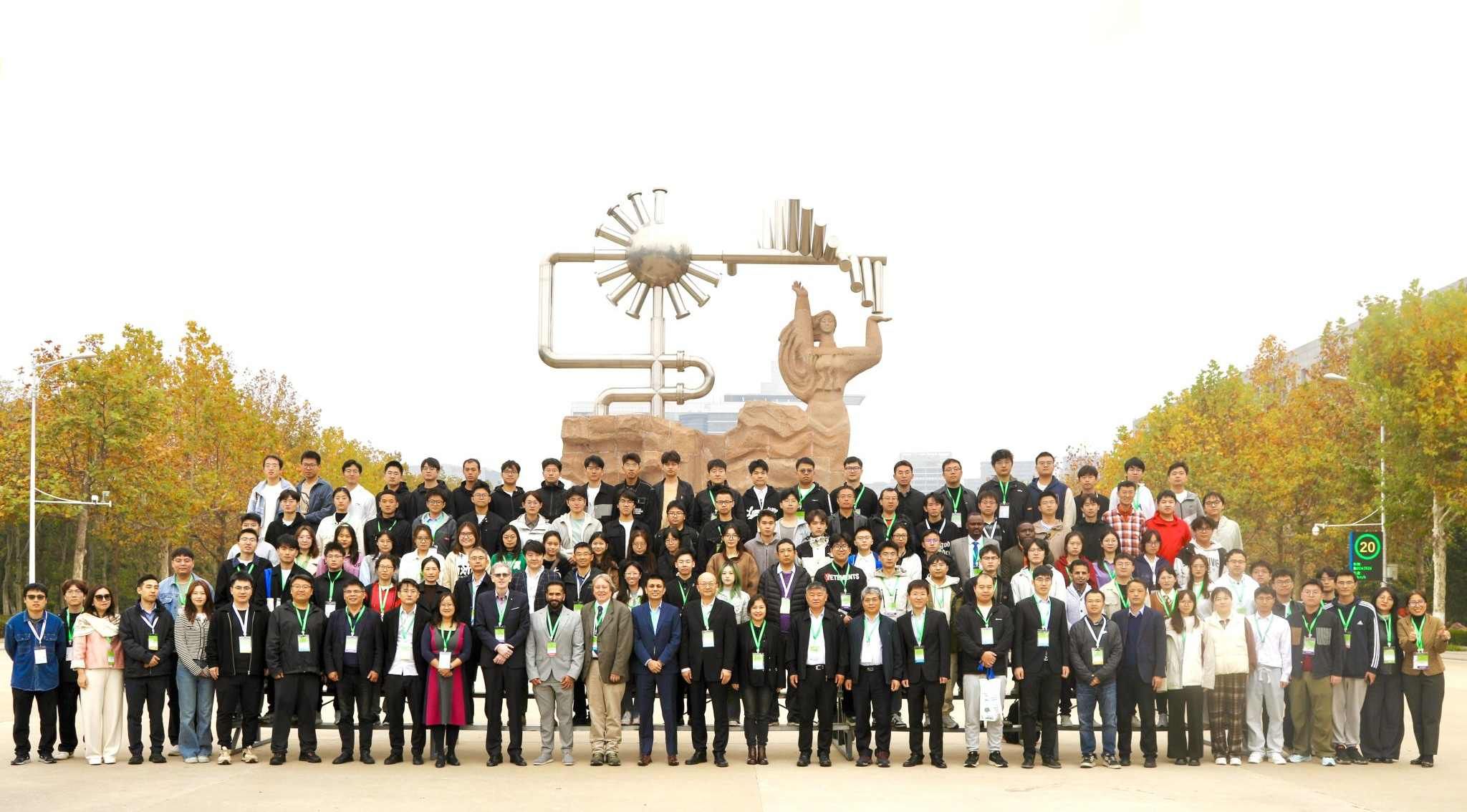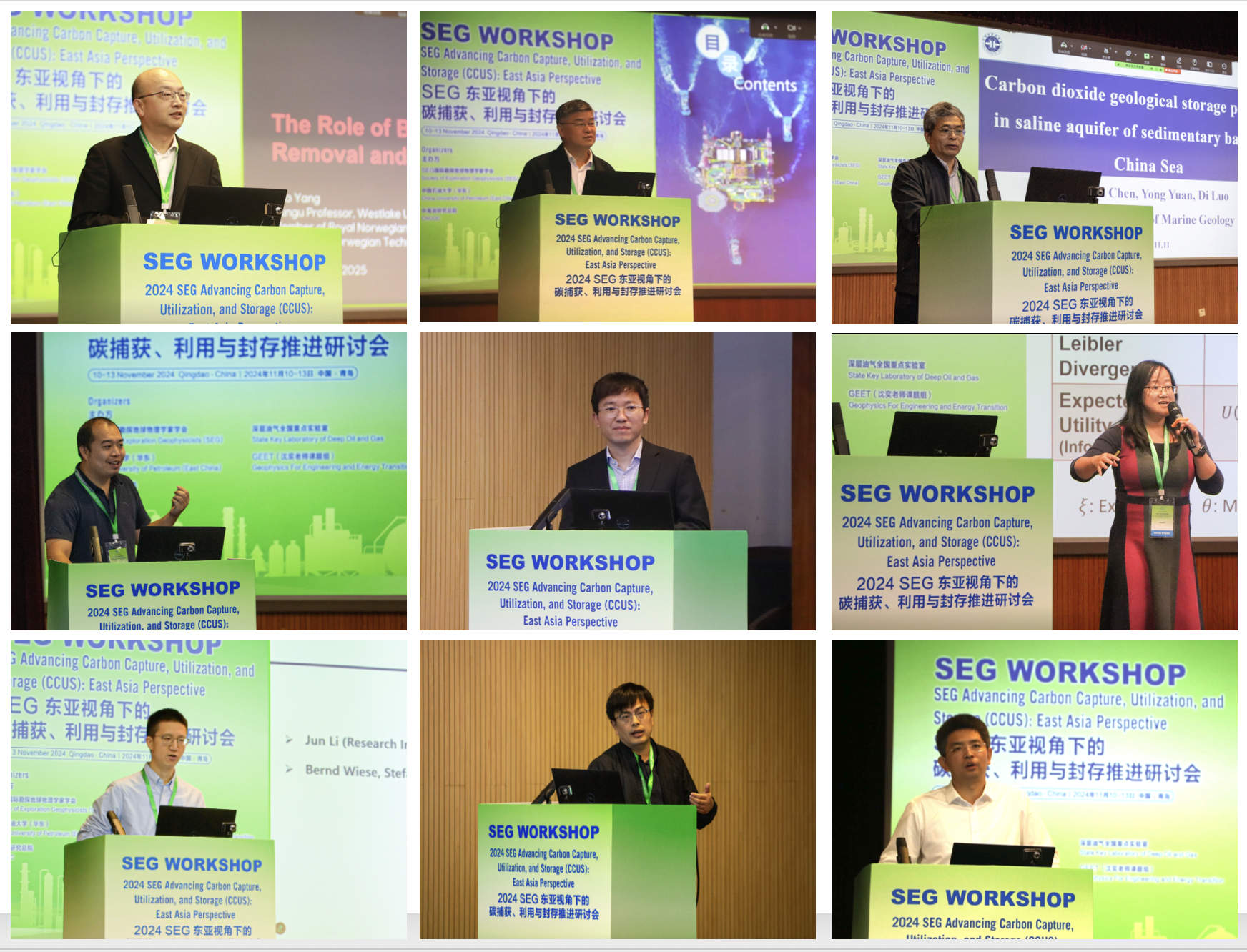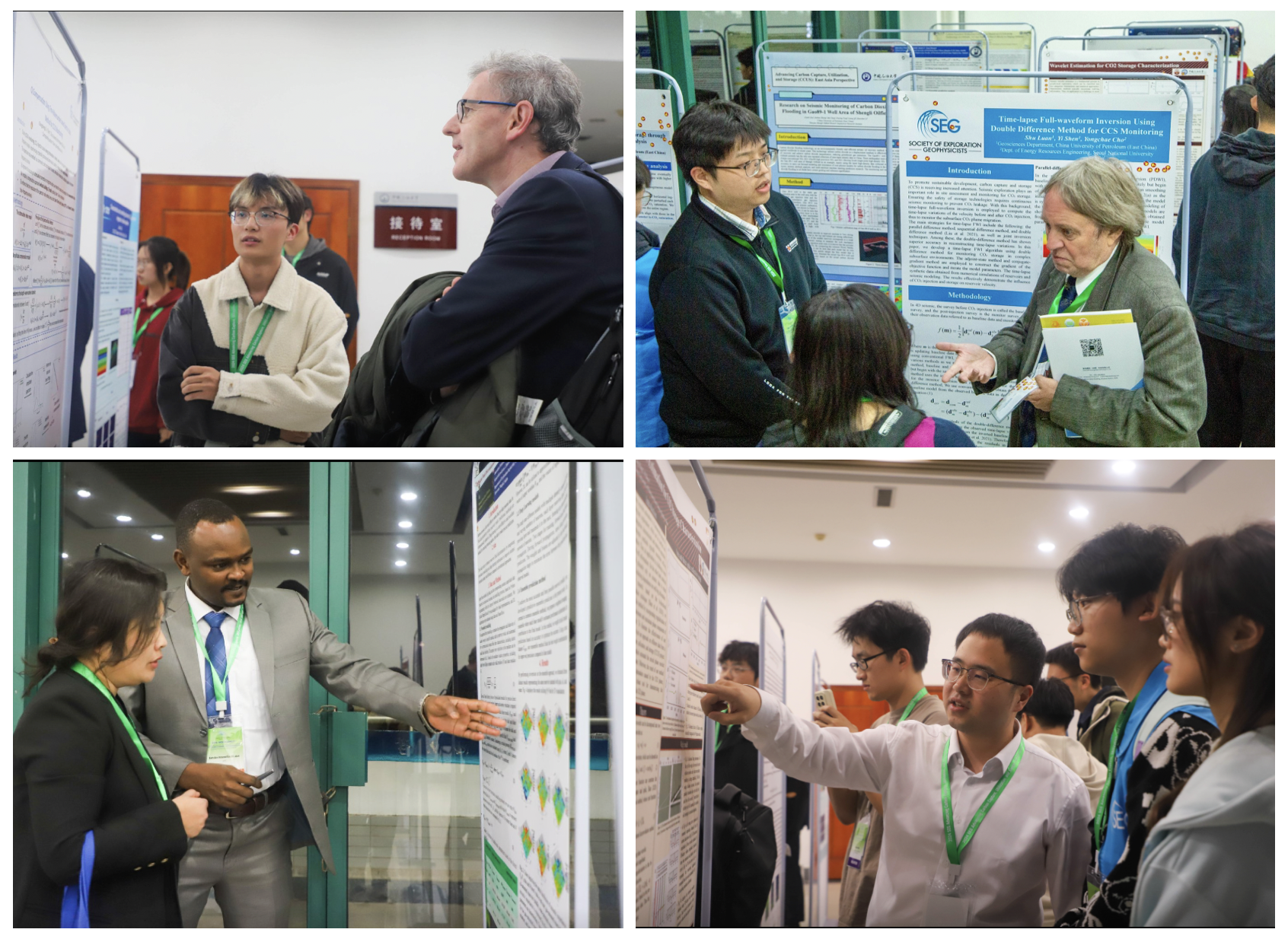Recently, the 2024 SEG Advancing Carbon Capture, Utilization, and Storage (CCUS): East Asia Perspective, jointly organized by the Society of Exploration Geophysicists (SEG), the State Key Laboratory of Deep Oil and Gas, China University of Petroleum (East China), GEET (Prof. ShenYi’s research group), and CNOOC Research Institute Ltd., was successfully held in Qingdao, China.

Over 200 experts, scholars, and young studentsattended the workshop, representing more than 30 renowned universities, research institutes, and companies worldwide, which include MIT, Stanford University, California Institute of Technology, Peking University, Tsinghua University, China University of Petroleum (East China), Institute of Geology and Geophysics, Chinese Academy of Sciences, CNOOC Research Institute Ltd., BGP INC., China National Petroleum Corporation, Chevron, Shell, Schlumberger, and Halliburton.
Covering a range of topics from theoretical exploration to practical application, and from core technologies to new equipment, the invited experts presented their latest research findings on the cutting-edge theories and technologies for advancing CCUS. The presentations covered key topics in related fields, providing attendees with valuable experience and insights through various case studies and technical approaches. Representatives from nearly 40 domestic and international organizations actively engaged in the experience-sharing and technical discussions at the workshop. They delivered a series of insightful reports focusing on the workshop theme, sharing their research findings, work experience, and industry insights, which together contributed to the global energy transition.


The SEG Advancing Carbon Capture, Utilization, and Storage (CCUS): East Asia Perspective focuses on CCUS within the East Asian context. It leverages geophysical insights to delve deeper and expand to encompass petroleum engineering, chemical engineering, and other scientific and technological fields. The workshop aims to foster technological innovations and advancements in CCUS, while striving to create a collaborative environment tailored to the specific needs and context of East Asia. This environment is designed to propel CCUS innovations forward, contributing to reaching national strategic goals for carbon peaking and carbon neutrality, as well as sustainable development goals. In addition to facilitating knowledge and experience sharing, the workshop presents significant opportunities for cooperation and development among all participating organizations, exerting profound and long-lasting guidance for the industry.
Translated: Zhang Yuanyuan
Reviewed: Xu Xiaoyan
Updated: 2024-11-26